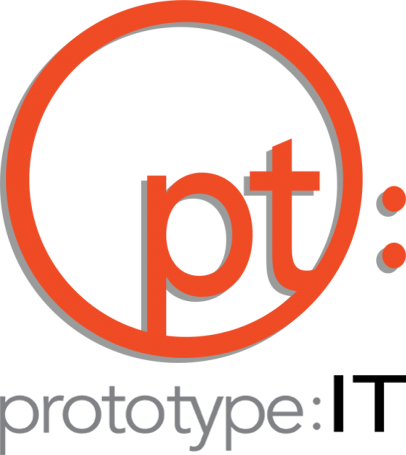What Is Cybersecurity and Why Is It Important? A Guide by a Managed IT Services Provider in Fort Worth
Fort Worth, United States - April 4, 2025 / Prototype IT - Fort Worth Managed IT Services Company /
Fort Worth Managed IT Services Provider Explains Why Cybersecurity Is Important
Cybersecurity is the backbone of trust for any business today. As companies increasingly rely on interconnected systems, threats, and their perpetrators grow sharper, smarter, and more sophisticated by the day.
“Cyber attacks don’t just threaten data; they threaten the lifeline of modern business.” – Thad Siwinski, CEO of Prototype IT.
According to the IBM 2024 Cost of a Data Breach Report, the average cost of a breach has soared to USD 4.88 million—a staggering price tag for any organization to bear.
A single breach can shatter customer confidence, cripple operations, and trnigger devastating financial losses. But cybersecurity isn’t about fear—it’s about preparedness, resilience, and staying one step ahead. In this article, a leading Fort Worth managed IT services provider explains why cybersecurity matters more than ever—and why your business can’t afford to ignore it.
The Rising Tide of Cyber Threats
Malicious software, phishing attacks, and system breaches are no longer rare events—they’re daily occurrences. Cybercrime damages are predicted to reach $10.5 trillion annually by 2025. Organizations of every size must constantly evolve their defenses.
If you’ve been following the Verizon Data Breach Investigations Report over the years, you’ve likely noticed how cybercriminals are continuously refining their tactics, using social engineering and sophisticated exploits. We strongly believe that if you neglect ongoing education and system hardening, you’ll be playing a costly game of catch-up.
Take a moment to assess your current security posture: Is your organization prepared for advanced ransomware attacks or insider threats? If not, it’s time to act decisively.
Why is Cybersecurity Important for Every Business?
Cybersecurity isn’t just about keeping your passwords safe—it’s about protecting the entire foundation of your enterprise. From financial stability and regulatory compliance to customer trust and future growth, the following reasons illustrate the far-reaching impact of strong cyber defenses:
- Financial and Reputational Fallout
A cyber attack can cripple a small or mid-sized business in an instant, draining resources through legal fees, data recovery expenses, and potential compensation for affected clients. 60% of small companies that get hit by a cyber attack go out of business within six months. And these companies are frequently targeted because criminals assume they lack robust defenses.
The consequences aren’t just financial—once your company’s name appears in headlines about a data breach, regaining trust becomes an uphill battle. By investing in secure payment systems, encryption, and regular penetration testing, you safeguard your bottom line and protect the brand you’ve worked so hard to build. - Safeguarding Intellectual Property
Whether you’re developing proprietary software or maintaining a confidential client list, your intellectual property (IP) is a primary target for cybercriminals and unscrupulous competitors. A well-executed breach can expose trade secrets and critical data, costing you your competitive edge.
This is why we need network security: every device or node connected to your infrastructure could become a backdoor for IP theft. Regularly updating software, segmenting your network, and employing robust monitoring tools act like guard towers around your digital perimeter, ensuring that your most valuable assets remain firmly under lock and key. - Customer Trust and Loyalty
In today’s market, customer trust is every bit as important as product quality or service efficiency. A client who entrusts you with sensitive information—payment details, health data, or intellectual property—expects you to keep it safe. Once a security breach occurs, it often sets off alarm bells for current and prospective clients.
The importance of network security becomes crystal clear when you consider that a single compromised login could allow hackers to exfiltrate vast amounts of customer data. By demonstrating a proactive stance on cybersecurity—through certifications, transparent policies, and timely breach disclosures—you reassure customers that their information is in responsible hands. - Ensuring Regulatory Compliance
Depending on your industry, you may be subject to stringent rules like HIPAA (healthcare), PCI DSS (payment cards), or GDPR (data protection for EU citizens). Non-compliance can lead to hefty fines and public scrutiny.
Embedding cybersecurity best practices into daily operations helps you meet these regulatory demands head-on. Beyond the fines, a publicized compliance failure can harm your brand reputation, making it vital to view security and compliance as an interlinked priority rather than a standalone checkbox. - Business Continuity and Operational Uptime
Ransomware attacks, Distributed Denial-of-Service (DDoS) incidents, and malware outbreaks don’t just steal data—they can bring your entire operation to a grinding halt. Imagine a scenario where your customer support systems or online sales portals are inaccessible for days. Downtime equates to lost revenue, eroded customer confidence, and frustrated employees.
Understanding the importance of network security means recognizing that every device, server, and application must be fortified to minimize disruption. Proactive strategies like real-time monitoring, intrusion detection, and frequent data backups ensure that, even if disaster strikes, you have a plan to get back online swiftly. - Preventing Insider Threats
Not all threats come from outside hackers; sometimes, issues stem from within. An employee clicking a phishing link, using a weak password, or maliciously exfiltrating data can wreak havoc on your systems. Implementing strong access controls, multi-factor authentication (MFA), and ongoing staff training can curtail these vulnerabilities. - Fostering Innovation and Technological Growth
Modern businesses rely on technological adoption—cloud computing, AI-driven analytics, and Internet of Things (IoT) deployments—to stay ahead. However, these innovations also broaden your digital attack surface. - Reducing Liability and Insurance Costs
Cyber liability insurance has become a necessity for many businesses. Yet, insurers increasingly require proof of strong cybersecurity practices—like patch management, endpoint protection, and employee training—before they’ll offer reasonable premiums. - A Competitive Differentiator
In saturated markets, robust cybersecurity can be a game-changer. If you can confidently assure clients that their data is handled with top-tier protection, you distinguish your brand from competitors who may be lagging behind in security. A strong track record in this area can open doors to lucrative partnerships, especially with enterprises that vet the security standards of all vendors. - Long-Term Resilience and Peace of Mind
Knowing that your company has implemented advanced threat intelligence, zero-trust architectures, and a thorough incident response plan means you can focus on growth, innovation, and market expansion without living in constant fear of a devastating breach. This resilience is an asset that pays off in myriad ways—from employee morale to shareholder confidence.
In essence, robust cybersecurity strategies protect you from immediate threats and set you up for future success. By unmasking these risks, you can see how each element of cybersecurity—ranging from regulatory compliance and insurance considerations to brand reputation and innovation—forms a critical puzzle piece in your overall business strategy.

Quick Comparison of Actionable Security Measures
| Measure | Description | Benefit |
| Multi-Factor Authentication (MFA) | Requires multiple verification methods | Stronger identity security |
| Network Segmentation | Splits network into secure zones | Limits spread of a potential breach |
| Zero-Trust Architecture | Assumes no internal or external perimeter is safe | Reduces insider threat, enforces strict access |
| Employee Training | Ongoing cybersecurity awareness and simulations | Minimizes human error, strengthens overall defense |
| Intrusion Detection Systems (IDS) | Monitors traffic for malicious activities | Early threat detection, proactive response |
Secure Your Business Now With a Trusted Fort Worth Managed Services Provider
Cybersecurity is no longer optional; it’s the foundation of a thriving, resilient business. From protecting financial assets and intellectual property to ensuring regulatory compliance and uninterrupted operations, the risks of weak security far outweigh the investment in strong defenses.
The time to act is now. Prototype IT specializes in cutting-edge cybersecurity solutions tailored to protect businesses like yours from emerging threats. Whether you need a security audit, network fortification, or 24/7 monitoring, our experts are ready to help.
Don’t wait until it’s too late. Contact a premier managed IT services provider in Fort Worth today to safeguard your business and ensure a secure, successful future.

Contact Information:
Prototype IT - Fort Worth Managed IT Services Company
600 W 6th St Suite 485
Fort Worth, TX 76102
United States
Mark Wendorf
(817) 631-5844
https://prototypeit.net/
Original Source: https://prototypeit.net/why-is-cybersecurity-important/

